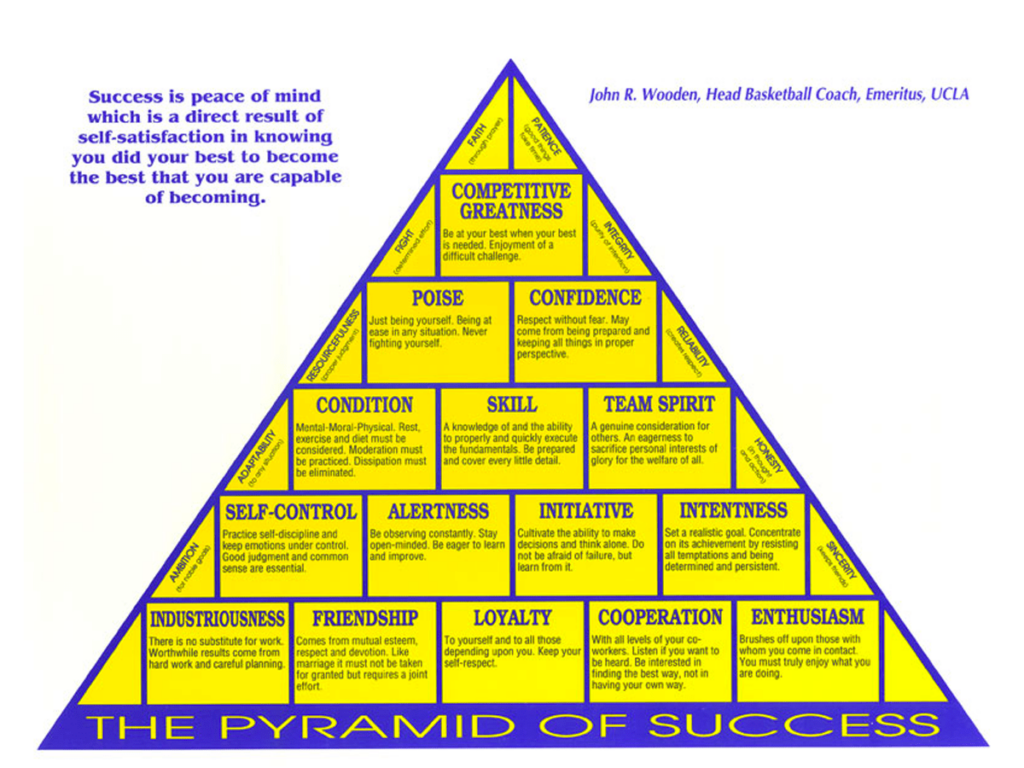AI and the Pyramid of Success
2024-10-18
One of the things that I’ve noticed about AI tools is that they’ve changed the way that I think about the role of intelligence in success.
In 2018, if you had sat me down and pressed me on the top qualities required to be successful, I probably would’ve had intelligence first. The ability to figure out the answer, it seemed to me, was probably the most important single quality to have if you could only have one.
In a post GPT-4 world, though, I’m no longer sure this is true. When I think about my kids and the qualities they need to develop, yes, I want a minimum level of intelligence, but I’m more interested in curiosity, initiative, earnestness, industriousness, judgement / taste, courage, and playfulness.
I’m struck by how many of these qualities are sitting in John Wooden’s pyramid of success.

Perhaps I was overrating the role of intelligence all along. Now with this frame, when I think about the most successful people that I’ve observed up close, alongside intelligence and the ability to process information is a whole lot of earnestness and industriousness.
Looking ahead, it seems to me that what is increasingly scarce and valuable isn’t the ability to breakdown what needs to be done, but the ability to get up off the couch and go do it. To consider the result that you get, and then go try again. To create trust with others so they help or at least don't hinder your progress. When I think about preparing for the world of the future, I think about thing a design studio, a Montessori classroom, or a basketball team.